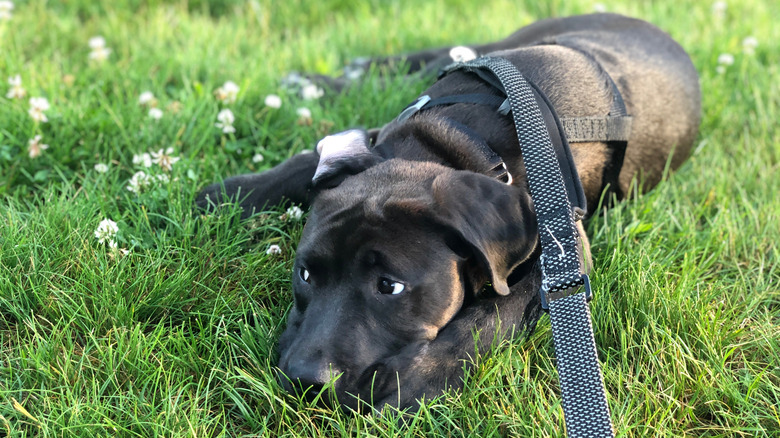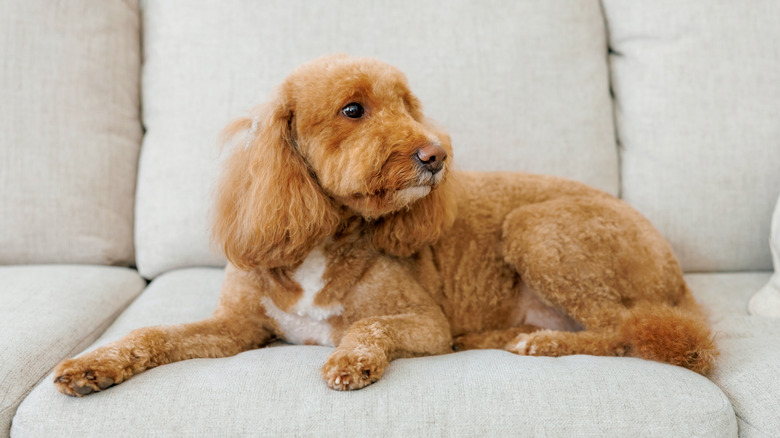Here's What It Might Mean If Your Dog Is Avoiding Eye Contact
We humans tend to anthropomorphize our beloved pets. Many of us expect our dogs to know when they've done something wrong, and we assume our dogs feel love and hate the exact same way humans do. When a dog avoids eye contact, many pet owners think this behavior means the dog is acting shy, aloof, or rude, perhaps feeling guilty or expressing dislike toward the person. The truth is actually quite different.
As with many animals, dogs can interpret direct eye contact as threatening behavior, likely to provoke defensiveness or aggression. Predators usually stare directly at their prey before attacking. Wild animals might stare at other members of their social group to demonstrate dominance and signal territoriality. Dogs that make brief eye contact with their owners, then look away, are often trying to avoid conflict and show submission. They're using their canine language to express that they pose no threat.
A dog that doesn't make eye contact could also be expressing negative emotions such as stress, discomfort, or uneasiness. When an owner gets upset at their dog and shows it by using angry body language and a loud, frustrated voice, the dog might try to defuse the tense situation by looking away. The dog is attempting to soothe itself and to make peace in the best way it knows how. Owners should always strive to remain calm around their pets, avoiding punishment and never using force to get an animal to behave in a desired manner.
Other reasons your dog might avoid eye contact
Dogs experiencing pain or illness might avoid looking at you. If your dog suddenly stops making eye contact — and especially if your dog starts exhibiting any other worrisome behaviors — it's time to consult a veterinarian. Your dog could be in pain, sick, injured, or suffering from an allergy, and your vet can figure out what's happening and recommend treatment.
It's a sad truth that far too many dogs have experienced neglect, mistreatment, or animal cruelty at the hands of abusive individuals. A dog accustomed to abuse might habitually look away from humans as a fear response. Consulting with a veterinary behaviorist or professional dog trainer can help you learn strategies for helping a fearful dog learn to trust again.
There could also be a surprisingly simple, straightforward reason your dog avoids eye contact: Perhaps your dog hasn't been trained and socialized properly. Your dog might never have learned that eye contact with you is normal, positive, and even beneficial behavior. Encourage eye contact by using enticements such as praise and tasty treats. Also consider teaching your dog the "watch me" or "look at me" cue. This useful cue gets your dog to quickly shift focus away from distractions and onto you — a helpful behavior both in everyday home life and in interruption-filled dog shows and competitions. Learning this cue can help strengthen the canine-human bond. Regardless of the reason, a little love and patience can help your dog feel more relaxed and comfortable around you.

